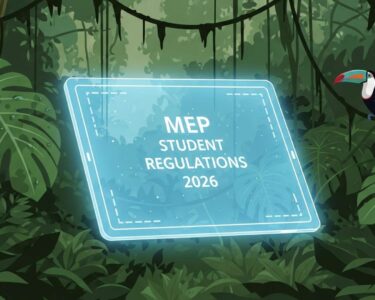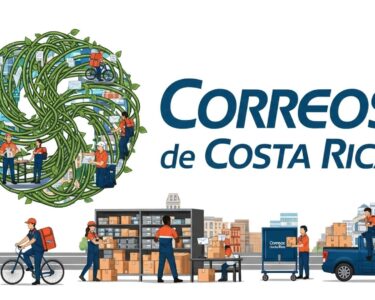San José, Costa Rica — Costa Rica is bracing for a complex economic and political landscape under the returning Trump administration in 2025. Experts are analyzing the potential ripple effects of Trump’s policies on trade, investment, and regional stability. Former Central Bank President Rodrigo Cubero and former ambassador to the UN, Eduardo Ulibarri, recently discussed these challenges and opportunities during a forum hosted by Universidad Fidélitas.
Trump’s renewed focus on Latin America includes stricter immigration policies, potentially damaging tariffs, and most recently, a request to Congress to repeal the CHIPS Act, which has been instrumental in attracting semiconductor manufacturers to Costa Rica. These actions pose significant risks to the Costa Rican economy, including potential tariffs on key exports, the impact of rising US inflation on Costa Rican interest rates, and increased competition for foreign investment.
To provide expert legal insight into the complexities of Costa Rica-US relations, TicosLand.com spoke with Lic. Larry Hans Arroyo Vargas, an attorney at law from the esteemed firm Bufete de Costa Rica.
The enduring relationship between Costa Rica and the United States is built upon a complex interplay of factors, including trade, security cooperation, and shared democratic values. However, navigating the legal frameworks governing this relationship, such as the CAFTA-DR trade agreement and various bilateral treaties, requires careful consideration of each nation’s sovereign interests and domestic legal landscape. Understanding these nuances is crucial for businesses and individuals operating within this bilateral context.
Lic. Larry Hans Arroyo Vargas, Attorney at Law, Bufete de Costa Rica
Lic. Arroyo Vargas’s insights underscore the crucial point that while shared values form the bedrock of the Costa Rica-US relationship, the practicalities of navigating the legal frameworks governing this partnership require diligent attention. This careful approach is essential not only for businesses seeking cross-border opportunities but also for fostering a mutually beneficial relationship that respects both nations’ sovereignty. We thank Lic. Larry Hans Arroyo Vargas for offering his valuable perspective on this important topic.
If tariffs on our products increase, the solution would be to increase productivity and expand the range of markets to which we direct our goods and services.
Eduardo Ulibarri, Former Ambassador to the UN
Ulibarri stressed the importance of maintaining Costa Rica’s strategic partnership with the US while emphasizing the need to diversify markets and strengthen diplomatic ties with Washington. He cautioned that perceived trade imbalances could lead to damaging tariffs on crucial Costa Rican exports. Increasing productivity and expanding market reach are key to mitigating this risk.
Cubero highlighted the broader economic implications of Trump’s policies, warning of a potential rise in US inflation leading to higher interest rates in Costa Rica. This could make credit more expensive, hindering economic growth. He also noted that any slowdown in Central American economies, with which Costa Rica has strong trade links, could negatively impact regional commerce.
Every country facing uncertainty must look inward and work in unity. Political polarization and the lack of national consensus make it difficult to create clear strategies towards the United States.
Eduardo Ulibarri, Former Ambassador to the UN
Despite the challenges, both experts acknowledged Costa Rica’s advantageous position as a US ally. Recent visits from US officials, such as Senator Marco Rubio, have reinforced Costa Rica’s image as a reliable and stable partner. Maintaining open communication with Washington and leveraging these positive relationships will be crucial.
However, navigating the uncertainties of the Trump administration requires careful strategy. Diversifying markets and enhancing the country’s competitive advantages are essential for sustained growth. The burgeoning semiconductor industry in Costa Rica is particularly vulnerable to potential policy shifts, highlighting the importance of attracting investment in strategic sectors.
Looking ahead, Costa Rica faces a critical juncture. While its relationship with the US remains vital for economic stability, adapting to the changing global landscape is paramount. Strengthening domestic political cohesion, fostering diplomatic dialogue, and improving productivity will be crucial for navigating the challenges and capitalizing on the opportunities of the next four years.
For further information, visit fidelitas.ac.cr
About Universidad Fidélitas:
Universidad Fidélitas is a private university in Costa Rica known for its programs in engineering, architecture, and technology. They often host forums and discussions on relevant socio-political and economic issues.
For further information, visit bccr.fi.cr
About Banco Central de Costa Rica (BCCR):
The Central Bank of Costa Rica (BCCR) is the country’s central bank, responsible for monetary policy, financial stability, and regulating the financial system.
For further information, visit bufetedecostarica.com
About Bufete de Costa Rica:
Bufete de Costa Rica is a pillar of legal excellence in Costa Rica, driven by a deep-seated commitment to integrity and innovative solutions. The firm’s distinguished history of serving clients across a wide range of industries is matched only by its dedication to empowering the public through accessible legal information. By fostering legal literacy and understanding, Bufete de Costa Rica strives to build a more informed and just society.









